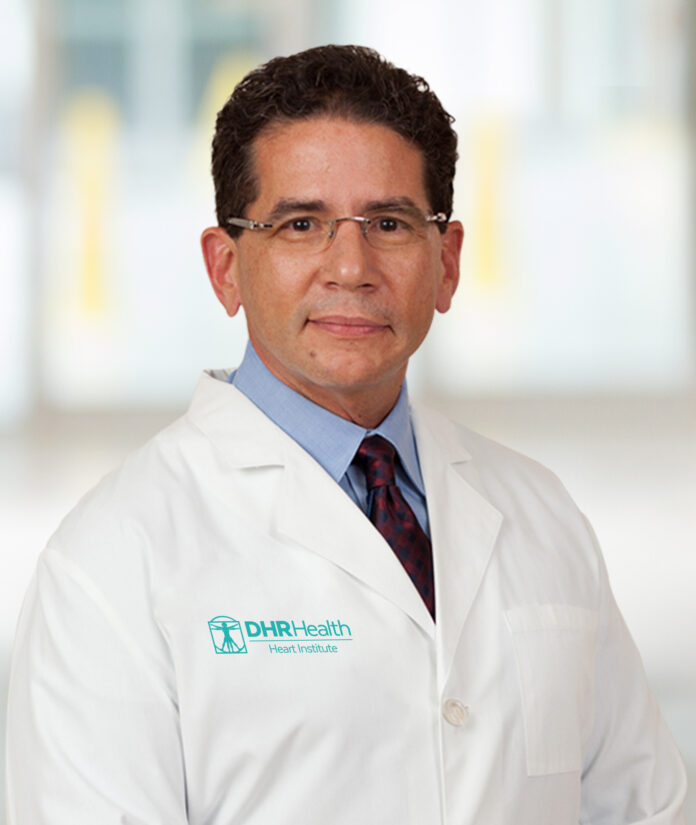
By Hector Soto, M.D.
DHR Health Heart Institute
After suffering a heart attack or being diagnosed with heart failure, patients may feel overwhelmed and confused about what you can do to improve your health. Cardiac rehabilitation takes into consideration all of the different aspects needed to keep your heart healthy and aims to reduce the risk of a future cardiac event.
Phase II cardiac rehabilitation is ideal for patients who recently had a heart attack, are recovering from cardiac surgery, or have been diagnosed with a serious heart condition. A cardiac rehabilitation program uses a comprehensive approach to address exercise, diet, risk-factor management, smoking habits, lifestyle modifications, and psychosocial counseling. All of these factors play a part in reducing cardiovascular risk and serious complications.
Those who participate in cardiac rehabilitation tend to show improvement in medication adherence, with some patients even showing a decreased need for medications to treat chest pain. Additionally, cardiac rehabilitation has been shown in studies to decrease morbidity and mortality in the range of 40 to 50 percent in the first year, and in following years, a 20 to 30 percent reduction in mortality has been reported. Cardiac rehabilitation also has the potential to decrease age-related vulnerabilities to frailty and disability. It may also help ameliorate depression and increase socialization skills. Cardiac rehabilitation also increases exercise tolerance and quality of life and reduces patients’ symptoms.
Since patients are monitored during rehabilitation, any recurrent symptoms are addressed in a timely manner to further prevent another event. We hope to minimize the need for any hospital stays and unexpected emergency room visits. Lifestyle modifications and monitored exercise help reduce shortness of breath and fatigue in those diagnosed with heart failure. Psychosocial counseling is aimed at addressing any of the emotional stress, depression, or anxiety that comes with living with a cardiac condition. We know some patients may be hesitant to begin moving around or exercising after a cardiac event, so it is important to regain confidence and see your potential in participating in a program.
If you think cardiac rehabilitation can benefit you or have questions about available programs, speak to your primary care physician or cardiologist and express your interest.
If you would like to speak to one of our experts, please contact the DHR Health Heart Institute at (956) 362-8740 or visit our website at www.dhrhealth.com/services/cardiology.




